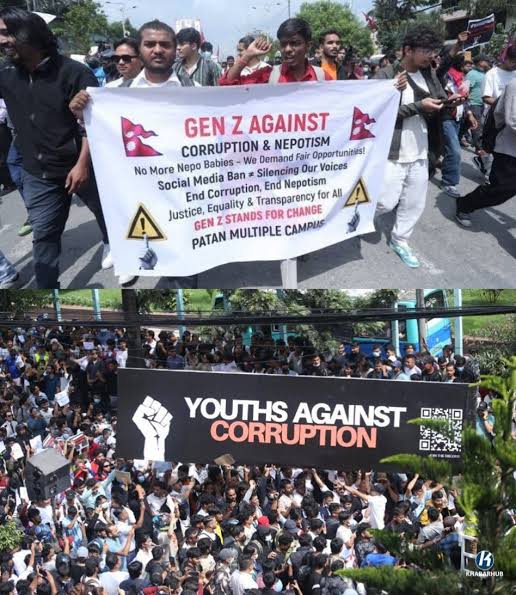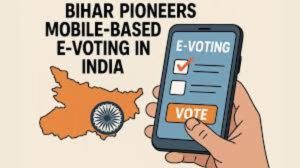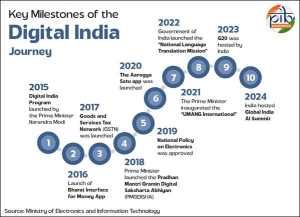Kathmandu, September 10, 2025 — Nepal is embroiled in one of the most tumultuous periods in years, as widespread youth-led protests, environmental disasters, and looming economic challenges converge in a national crisis.
Nepal’s Gen Z has erupted onto the national stage with a forceful political awakening—driven by a clash over social media censorship and deep-rooted frustration with corruption. What started as a pushback against a ban on digital platforms swiftly turned into an unignorable protest movement demanding accountability and transparency
However, the ban’s impact went beyond free speech—it ignited simmering anger over the glaring nepotism, wealth inequality, and chronic institutional corruption. A growing online movement exposing the privileged lives of politicians’ children—tagged as “Nepo Kids”—crystallized their frustration.
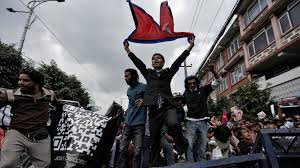
From Screens to Streets: Gen Z Mobilizes
This digital discontent morphed rapidly into physical protest. Spearheaded by the NGO Hami Nepal, organizers used Instagram, Discord, and YouTube to circulate planning guidelines—urging participants to don school uniforms and carry college supplies.
When protests erupted on September 8 and 9, they were remarkable not just in scale but in their demographic identity—thousands of students in uniforms, waving the national flag and slogans like “Shut down corruption, not social media.” Demonstrations extended well beyond Kathmandu to cities like Pokhara, Biratnagar, Butwal, and Bharatpur, prompting widespread curfews.
By September 8, clashes between demonstrators and authorities turned deadly. Police firing resulted in dozens of fatalities, with at least 17 confirmed deaths and over 140 injured. Demonstrations escalated further: parliament and other government buildings were torched, and protesters even stormed prisons, freeing thousands of inmates.
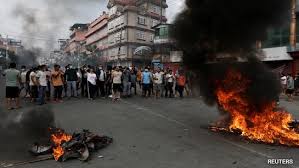
Protesters, many from Generation Z, are demanding systemic changes, including anti-corruption reforms and social media freedoms. Calls have emerged for a transitional government with Gen Z representation, and even suggestions for Balendra Shah, Kathmandu’s popular mayor, as a leader for interim governance.
Clashes and Consequences: A Nation in Crisis
The protests escalated tragically. Police responded with tear gas, water cannons, rubber bullets—and in many cases, live rounds. The result: at least 19 to over 22 deaths, hundreds more injured, and a country teetering on the edge.
Buildings burned, including Parliament and the homes of prominent politicians. Demonstrators breached secured areas, and chaos swept across major urban centers. In response to the escalating crisis:
- Prime Minister K.P. Sharma Oli resigned and became a caretaker.
- The Home Minister also stepped down.
- The social media ban was lifted within a day.
- The Nepali Army was deployed to enforce curfews, patrol cities, and restore stability.
Amid the tumult, many Gen Z protesters challenged the narrative that violence was their doing.
- “This protest may end after three days, but the energy of today shows something bigger.”
— Yusan Mainali, IT student - Journalism student Thapa pointed out how the absence of coherent leadership invited opportunistic manipulation:
- “Unserious groups were trying to manipulate the masses… The main agenda was against corruption, but outside forces were pushing their own interests.”
- Celebrities, too, joined in solidarity. Notable figures like Madan Krishna Shrestha and Hari Bansha Acharya lent vocal support to Gen Z’s right to protest.
- Human rights groups also chimed in, with Amnesty International condemning the use of excessive force and demanding independent investigations and justice for victims.
What’s Next for the Movement?
This is more than a protest—it’s potentially a turning point. With a political vacuum in place, protesters are demanding structural reforms: dissolution of parliament, new elections, and youth representation in governance.
Nepal’s Gen Z movement is more than a reaction—it’s a declaration.
A generation connected globally, educated digitally, and fed up with stagnation is demanding a new social contract. They’re not just protesting censorship—they’re insisting on transparency, opportunity, and a future they help shape.
Will Nepal’s leaders hear this voice, or will it grow louder? The coming days will be critical—not just for change, but for the fundamental role of youth in redefining democracy.

